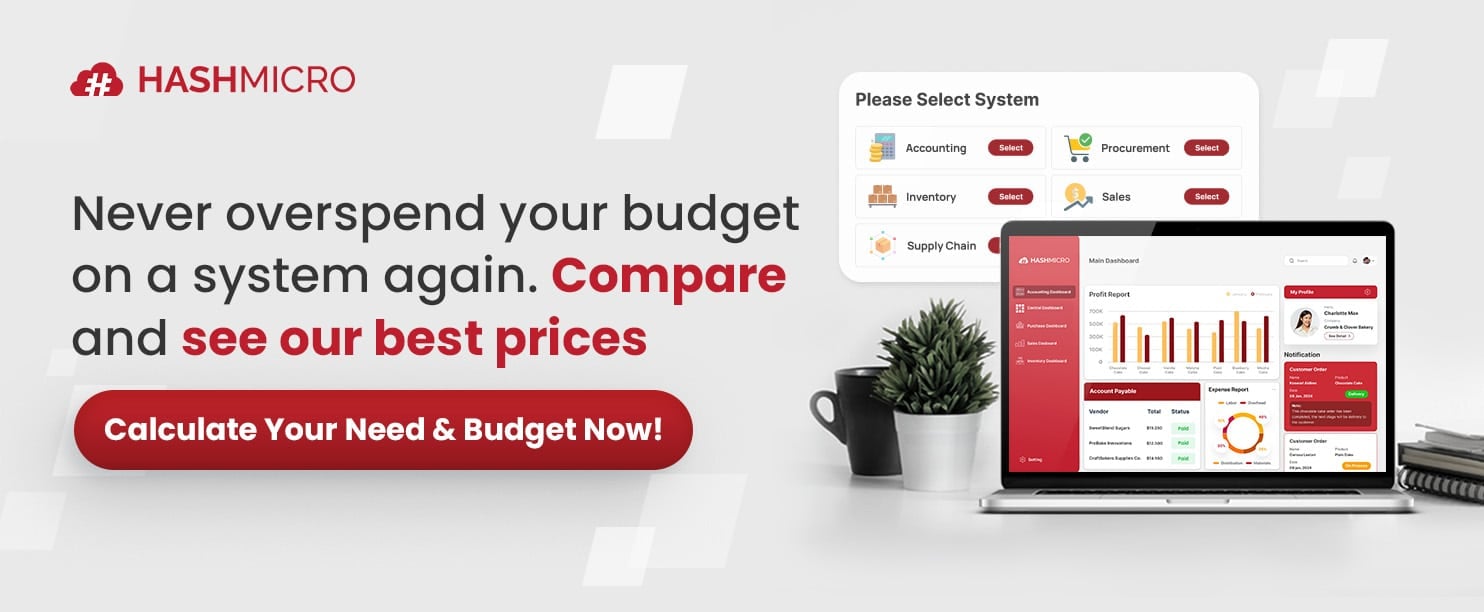Managing business operations efficiently is becoming more challenging in Malaysia’s competitive market. Without a centralized system, businesses struggle with real-time decision-making, which affects productivity and profitability.
ERP software in Malaysia integrates key business functions like accounting, procurement, project management, and supply chain management into a unified platform. As more companies adopt ERP solutions to enhance efficiency and productivity, Malaysia is emerging as a leader in business software adoption within the Asia-Pacific region.
According to Statista, the market is projected to grow steadily, with an expected annual growth rate (CAGR) of 7.94% from 2025 to 2029, reaching a market volume of US$1.57 billion by 2029. This growth reflects the increasing demand for digital transformation and automation in Malaysian businesses.
If your business faces disconnected systems and operational bottlenecks, it may be time to upgrade. This guide explores the 21 Best ERP Software for Malaysian Companies, helping you find the right solution to optimize efficiency and drive long-term growth.
Key Takeaways
|
Table of Content
Content Lists

What Is ERP Software?
Enterprise Resource Planning (ERP) is a type of software that organizations use to manage daily business activities, including accounting, procurement, project management, risk management, compliance, and supply chain operations. It centralizes data and automates processes to improve efficiency and accuracy across departments.
By integrating key business functions into a unified platform, ERP software eliminates data silos, enhances decision-making, and streamlines operations. In Malaysia, businesses are increasingly adopting ERP systems to boost productivity and maintain a competitive edge in their industries.
Benefits of ERP Software
Implementing an ERP system offers a wide range of advantages that extend beyond basic operations. Below are some of the key ERP benefits that highlight why ERP systems have become indispensable for businesses.
- Achieving a High Return on Investment (ROI): ERP systems boost profitability by streamlining processes and reducing inefficiencies. They automate workflows and provide actionable insights, with 83% of companies meeting or exceeding ROI expectations within the first year of implementation.
- Ensuring Regulatory Compliance: ERP systems help Malaysian businesses stay compliant with evolving regulations, including those from the Inland Revenue Board of Malaysia (IRBM). Automated reporting minimizes manual errors, simplifies audits, and ensures accurate documentation, reducing the risk of penalties.
- Reducing Operational Costs: By integrating multiple business functions into a single platform, ERP systems cut costs through task automation, reduced labor expenses, and minimized errors. They also optimize inventory management, lowering storage costs and reducing unnecessary expenses by up to 23%.
- Enhancing Scalability and Visibility: ERP systems grow with your business, handling increased transactions and complexities with ease. They provide real-time data across departments, allowing managers to make informed decisions quickly and maintain competitiveness in fast-changing markets.
- Improving Collaboration and Workflow Efficiency: Centralizing data with an ERP system enhances collaboration across departments by providing consistent, real-time information. This reduces misunderstandings, improves communication, and automates repetitive tasks, leading to greater efficiency and reliable outcomes.
21 Best ERP Software for Malaysian Businesses
Here are 21 top-rated ERP software for Malaysian businesses that we’ve handpicked for you, based on their features and reliability.
- HashMicro: Cloud ERP with AI for various industries in Malaysia.
- SAP HANA: In-memory ERP with finance and CRM, requires IT skills.
- Oracle NetSuite: Cloud ERP with real-time reporting and limited support.
- Microsoft Dynamics 365: Intelligent ERP integrated with Microsoft products, suitable for businesses.
- Epicor: Modular ERP for manufacturing and distribution, requires experts for maintenance.
- Infor: Cloud ERP with industry solutions and centralized asset management.
- Acumatica: Flexible cloud ERP for finance and distribution, limited features.
- Sage: ERP for accounting and HR, customized for multi-line businesses.
- ECOUNT: Easy-to-use cloud ERP, inventory and accounting modules.
- SYSPRO: Modular ERP for manufacturing and supply chains, with UI issues.
- Odoo: Open-source ERP with integrated modules and user-friendly interface.
- WorkWise: ERP for manufacturing with a steep learning curve.
- Workday: Cloud ERP for HR and assets, with third-party support.
- Deskera: ERP with accounting, inventory, and HR, still in development.
- Brightpearl: Cloud ERP for omnichannel retailers, limited support.
- SystemEver: ERP for production and warehousing, with access across devices.
- Impact: ERP for manufacturing efficiency, with delivery integration.
- SAP Business One: ERP software designed to streamline business operations, from finance to human resources.
- ERPNext: Open-source ERP with integrated modules, requires technical knowledge.
- SAP EWM: Warehouse management and supply chain ERP, outdated interface.
- Compiere: Excels with multi-company support.
Selecting the right enterprise software for your Malaysian business can be daunting, with numerous options to consider. Here’s a detailed list of the 21 best ERP systems in Malaysia. We’ve thoroughly analyzed user needs and outlined each solution’s strengths and drawbacks.
1. HashMicro ERP
Initially founded in Singapore, HashMicro has expanded its reach to become a significant player in the ERP software industry across Southeast Asia. In Indonesia, HashMicro is the leading provider of ERP solutions, particularly favored by large companies for its cloud-based software.
Now expanding to Malaysia, HashMicro’s ERP system offers various tools for managing business operations. The ERP software also incorporates advanced AI features to streamline processes effectively while adhering to local needs and regulations.
With its user-friendly interface and flexibility, HashMicro’s ERP software in Malaysia serves various industries and constantly evolves to meet different business needs. From general business needs like sales, accounting, and inventory, to industry-specific ERP modules like manufacturing, retail, F&B, and supermarkets, this software covers it all.
Allied Market Research recognizes HashMicro as a top ERP provider in Southeast Asia, with over 2000+ clients, including big names like McDonald’s and the Bank of China. This report proves that HashMicro’s influence and impact on the ERP market remain remarkable.
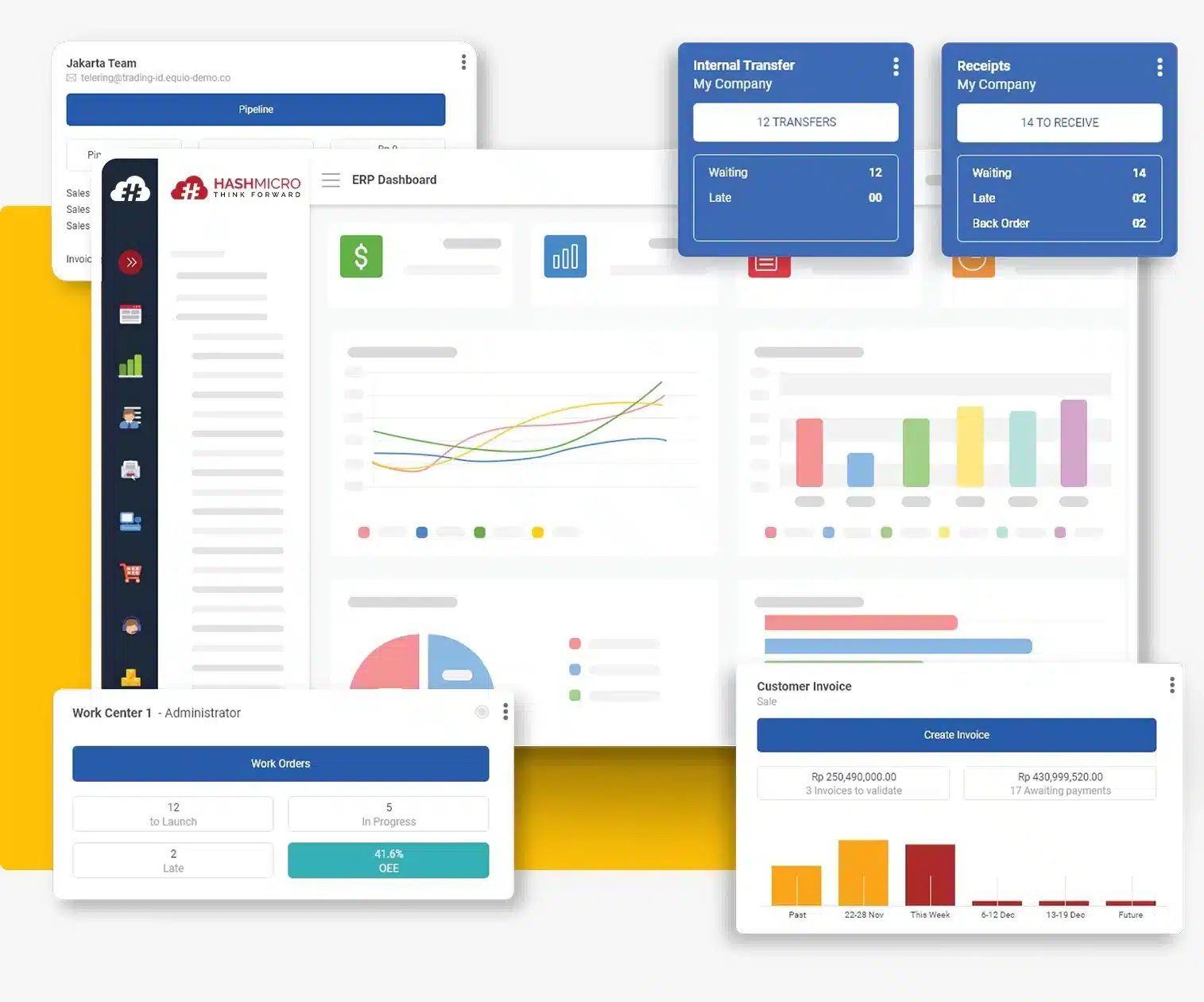
HashMicro offers various modules for each of your company’s needs, including but not limited to:
- CRM (Customer Relationship Management): The CRM software’s modules encompass handling prospect and customer information, tracking the sales pipeline, arranging follow-up appointments with prospects, generating quotations and invoices, and generating comprehensive sales analytics.
- Accounting: The accounting software or finance module streamlines tasks such as bookkeeping, budgeting, asset depreciation, bank reconciliation, invoice creation, financial reporting, and cash flow forecasting. HashMicro’s ERP service offers an accounting system that simplifies all aspects of financial management.
- Inventory (Inventory Management Software): This module streamlines stock management, tracks, and optimizes inventory levels. Examples of features in this inventory software include inventory forecasting, stock picking and packing, supplier management, and delivery tracking.
- HRM (Human Resource Management): HashMicro’s HRM software module streamlines the employee administration process and simplifies recruitment, attendance and leave tracking, tax management, and more. It offers a valuable HRM module to enhance HR performance in managing personnel.
- Procurement: Procurement software simplifies buying by managing resources, vendors, and invoices. It ensures you have the right inventory while improving communication between vendors, suppliers, and your purchasing team.
- Other modules: In addition to the core modules mentioned earlier, HashMicro also offers a range of specialized modules tailored to specific business requirements. These modules cater to diverse industries such as manufacturing, construction, mining, distribution, and more.
Here are some of the advantages and weaknesses of the best type of business intelligence software product from HashMicro compared to other software:
| Pros | Cons |
|
|
The comprehensive features that HashMicro offers highlight the software’s effectiveness in delivering a high-standard management system. To learn more about HashMicro ERP, click the banner below and view the pricing scheme.
2. SAP HANA
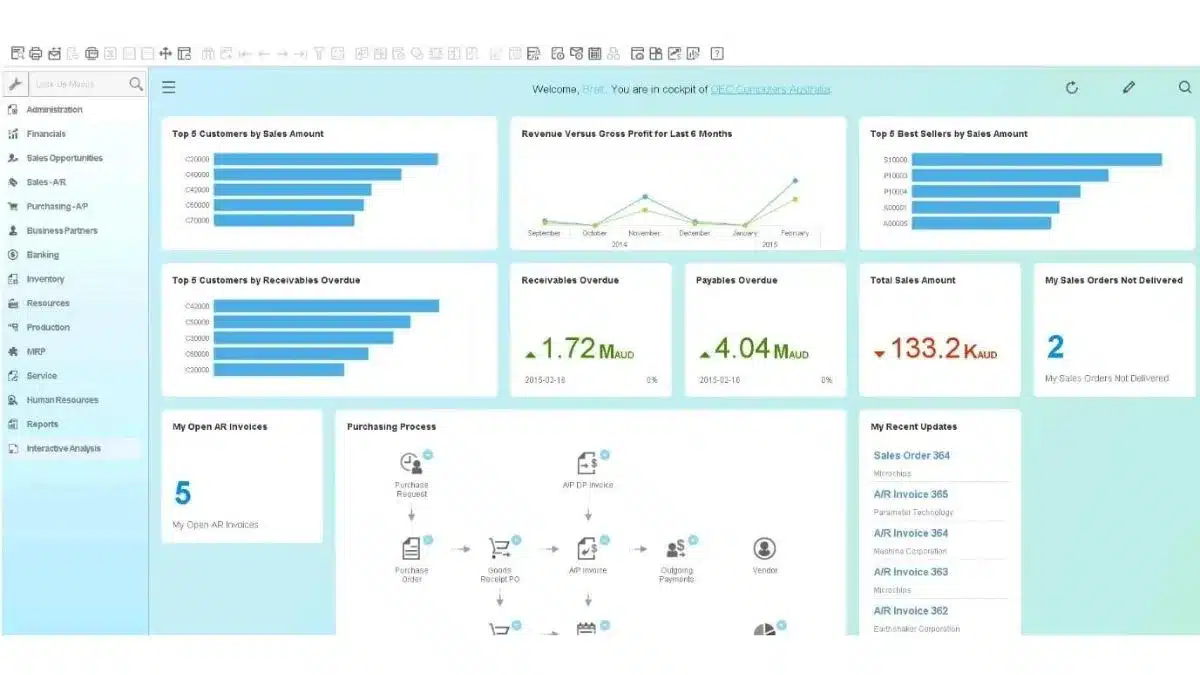
SAP S/4 HANA is one of the best ERP software in Malaysia, harnessing in-memory databases for swift data processing. It offers various modules like financial management, procurement, manufacturing, and logistics. However, its implementation costs and extra fees may pose financial challenges for some businesses
Features
- Finance
- Customer Relationship Management
- Network and Spend Management
- Digital Supply Chain
- HR and People Engagement
- Experience Management
| Pros | Cons |
|
|
3. Oracle NetSuite
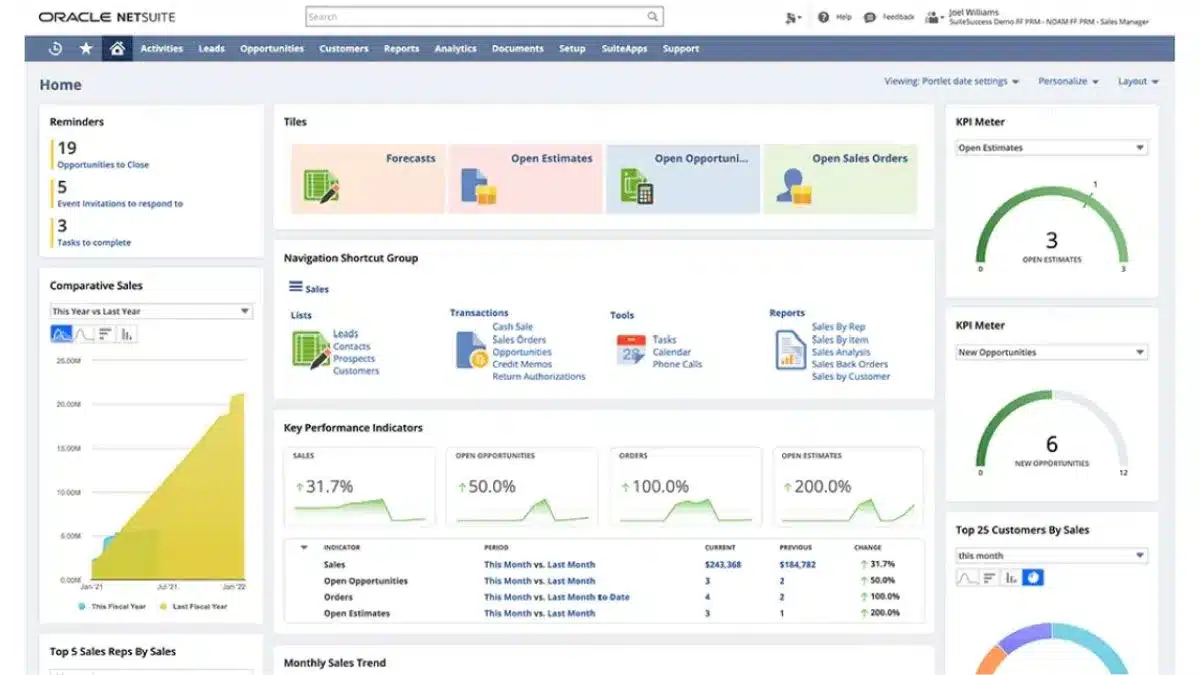
NetSuite, a cloud-based ERP software by Oracle, helps businesses automate and manage various aspects with its rich modules. It provides real-time insights into financials, CRM, inventory, and sales. Serving industries like manufacturing, retail, software, and e-commerce, NetSuite is adaptable for businesses of any size with advanced reporting and analytics.
Features
- Financials
- Project Management
- Procurement
- Risk Management
- Supply Chain Management (SCM)
- Customer Relationship Management
| Pros | Cons |
|
|
4. Microsoft Dynamics 365
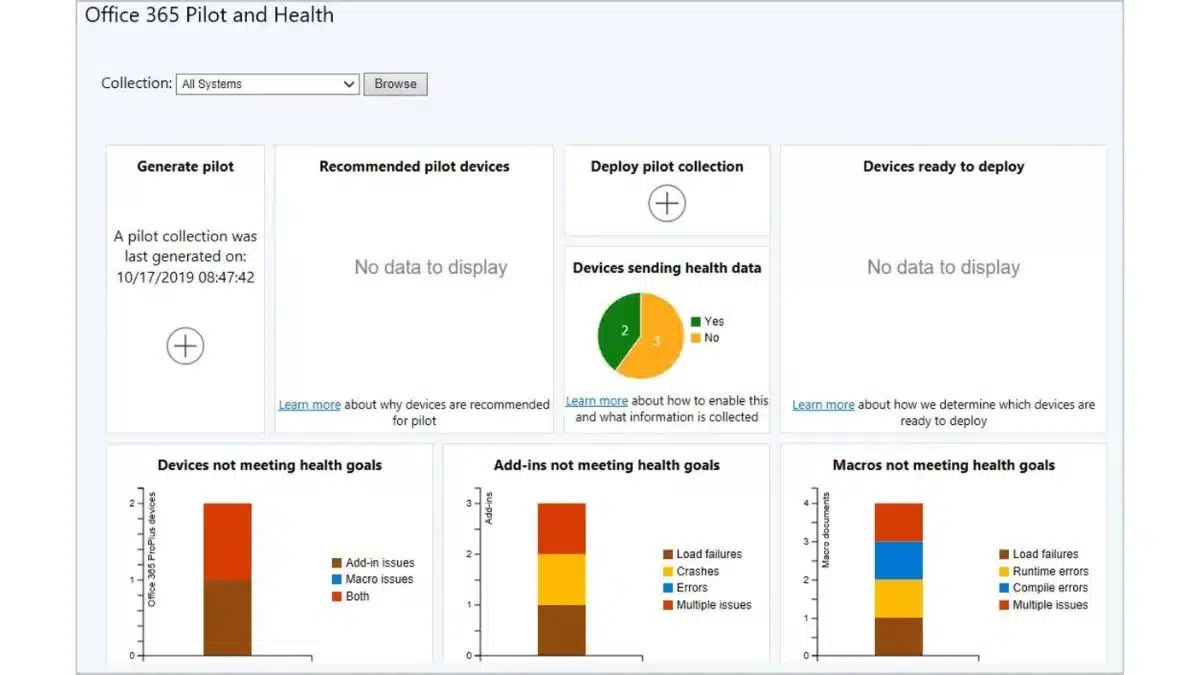
Microsoft Dynamics 365 comprises a suite of intelligent applications for both enterprise resource planning (ERP) solutions and customer relationship management (CRM), seamlessly integrated with other Microsoft products. It provides a diverse array of features tailored to businesses’ needs.
Features
- Financial Management
- Sales
- Purchases
- Warehouse Management
- CRM
- Human Resources Management
- Manufacturing
| Pros | Cons |
|
|
5. Epicor
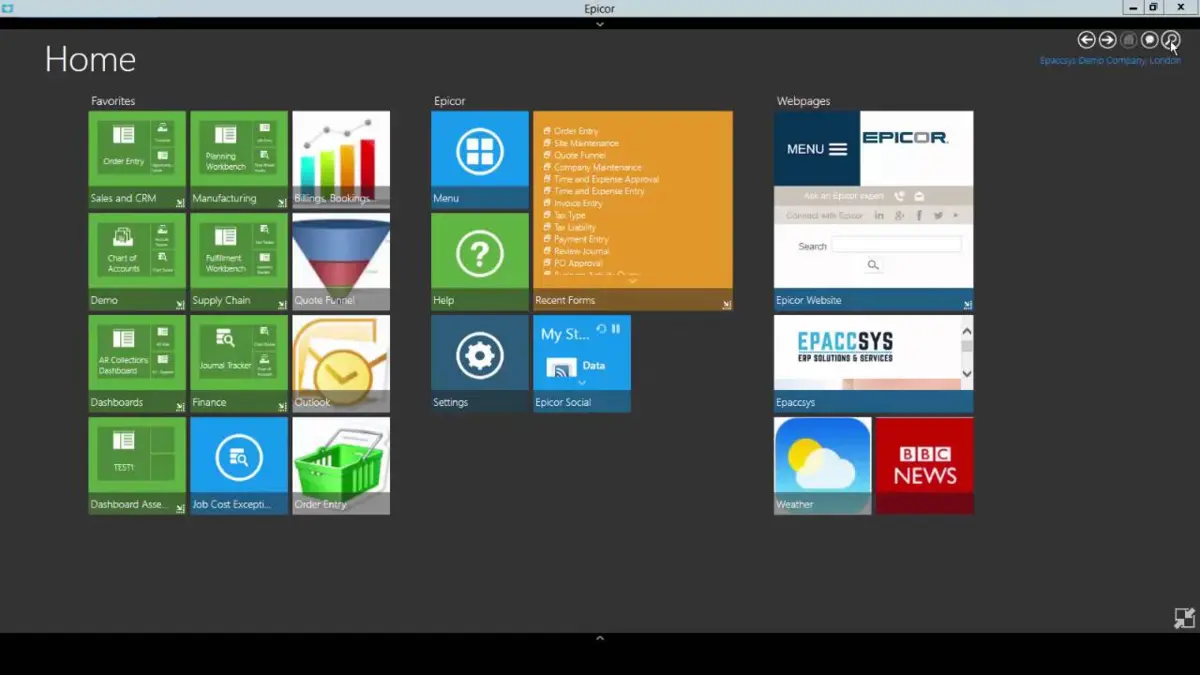
The Epicor ERP system is modular and tailored to specific industries, serving as comprehensive software for managing company-wide business processes. It handles various business processes effectively. Epicor software is accessible both on-premises and via SaaS cloud deployment.
Features
- Manufacturing execution system (MES)
- Supply chain management
- Financial management
- Human capital management (HCM)
- Business intelligence & analytics
- Customer relationship management (CRM)
| Pros | Cons |
|
|
6. Infor
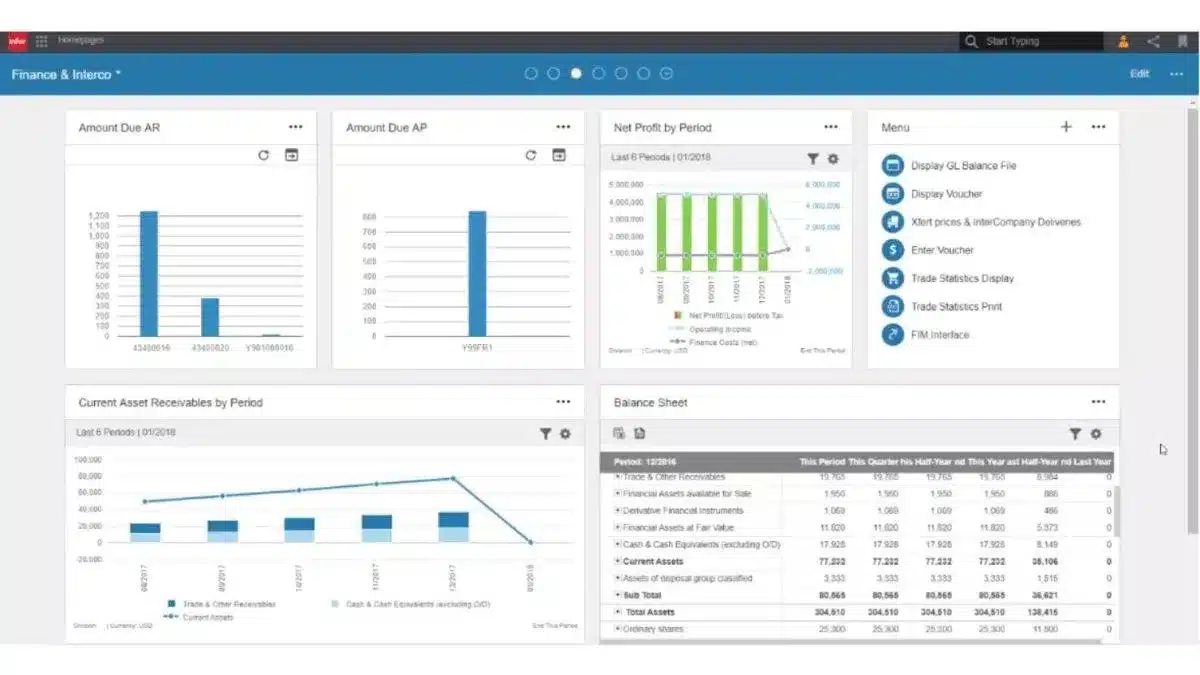
Infor ERP, a cloud-based ERP software, provides industry-specific solutions for manufacturing, distribution, healthcare, and more sectors. Its tailored approach ensures businesses have the tools they need to thrive in their respective fields.
Features
- Finance management
- Procurement
- Manufacturing
- Inventory management
- Customer relationship management (CRM)
- Human resources
| Pros | Cons |
|
|
7. Acumatica
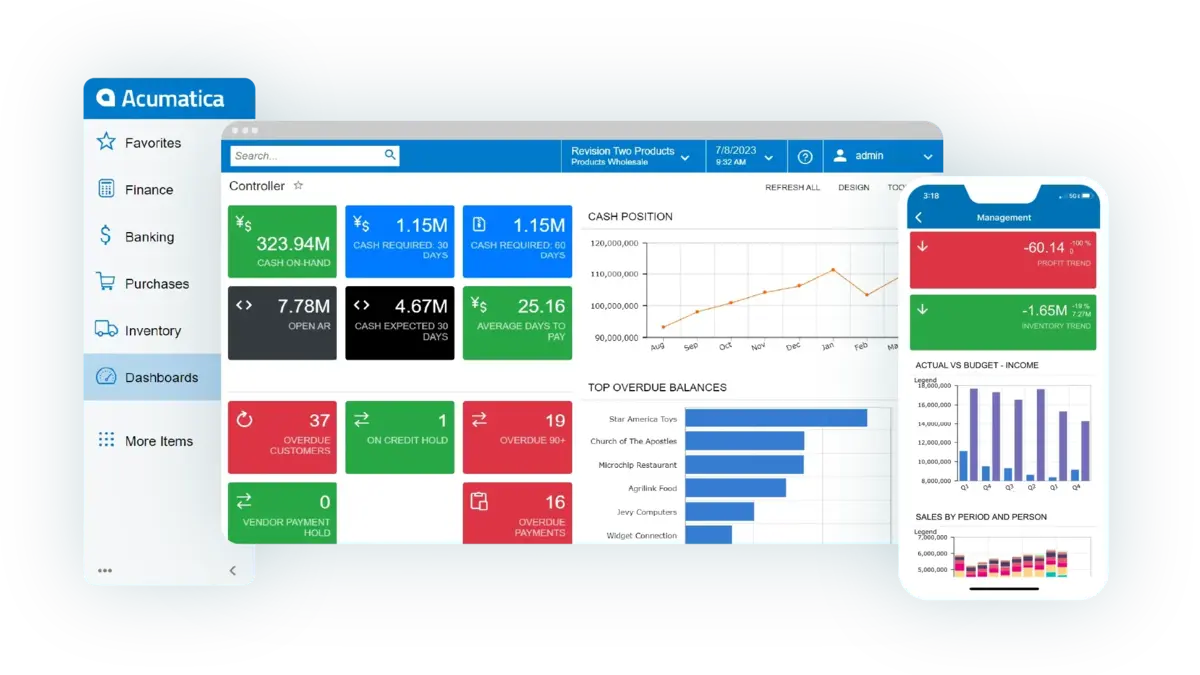
Acumatica is a cloud-based ERP software in Malaysia that provides functionalities like financial management, distribution, project accounting, and customer management. Its flexibility allows easy customization to suit individual business requirements.
Features
- Financials
- Distribution
- Manufacturing
- Retail-Commerce
- Construction
- CRM
| Pros | Cons |
|
|
8. Sage
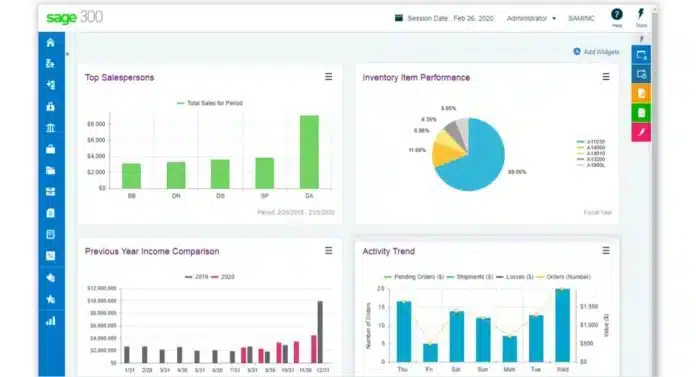
Sage is one of the prominent ERP software in Malaysia. Initially known for accounting software development, it has since diversified its product range. Sage’s software solutions primarily encompass accounting, payroll, human resource management, and payment functionalities.
Features
- Accounting tools
- Payroll management
- Human resource management
- Payment processing
| Pros | Cons |
|
|
9. ECOUNT
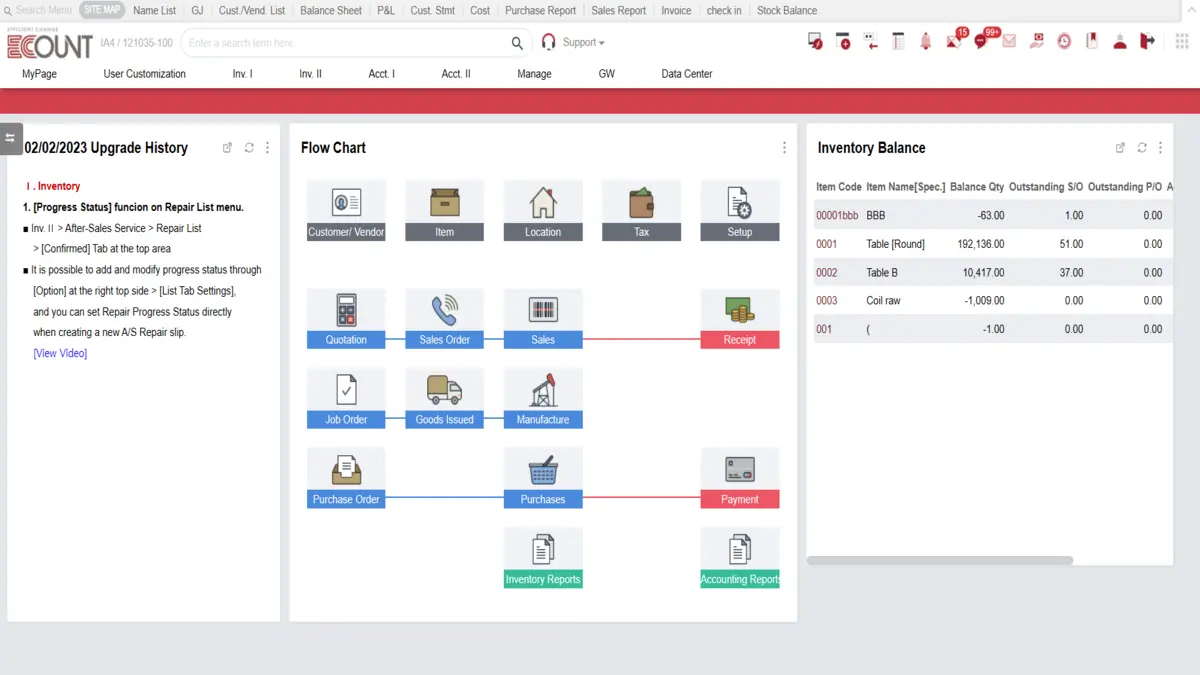
ECOUNT is a cloud-based ERP system tailored for Malaysian businesses. It offers comprehensive tools for managing inventory, production, logistics, sales, accounting, and payroll. ECOUNT’s inventory management feature allows users to track inventory movement across multiple locations.
Features
- Inventory
- Production
- Sales
- Purchasing
- Accounting
- Payroll
- Collaboration
| Pros | Cons |
|
|
10. SYSPRO

SYSPRO offers ERP and integrated business software to manufacturers and distributors. Their software covers all business aspects, such as accounting, manufacturing, operations, and distribution, aiding in automating and integrating core processes
Features
-
-
- Supply chain management
- Sales management and CRM
- Business activity monitoring
- Warehouse management
- Business intelligence
- E-commerce
-
| Pros | Cons |
|
|
11. Odoo
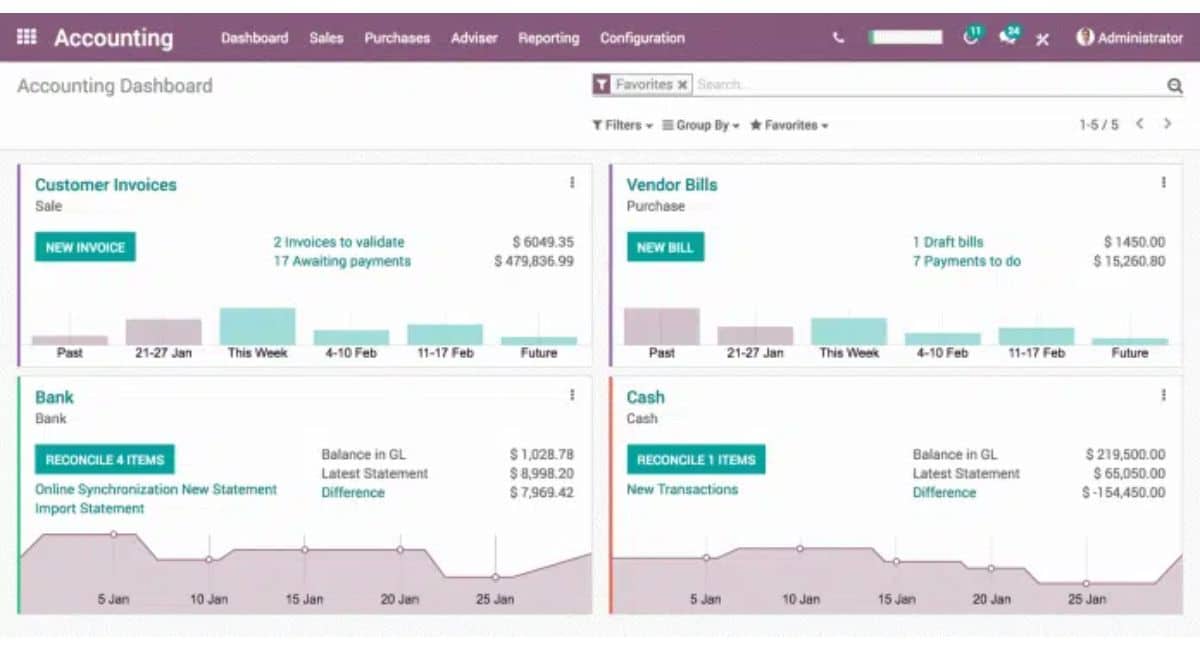
Odoo is an open-source ERP business software that helps businesses manage all aspects in an integrated manner with various modules such as CRM, project management, sales, manufacturing, warehouse, and financial management.
By using Odoo’s best ERP software, companies can integrate existing systems, making it easier for each department to access what it needs according to its requirements.
In addition to having comprehensive modules, this ERP software provider also offers a reporting system with a structured format that’s easy for users to understand visually.
| Pros | Cons |
|
|
12. WorkWise
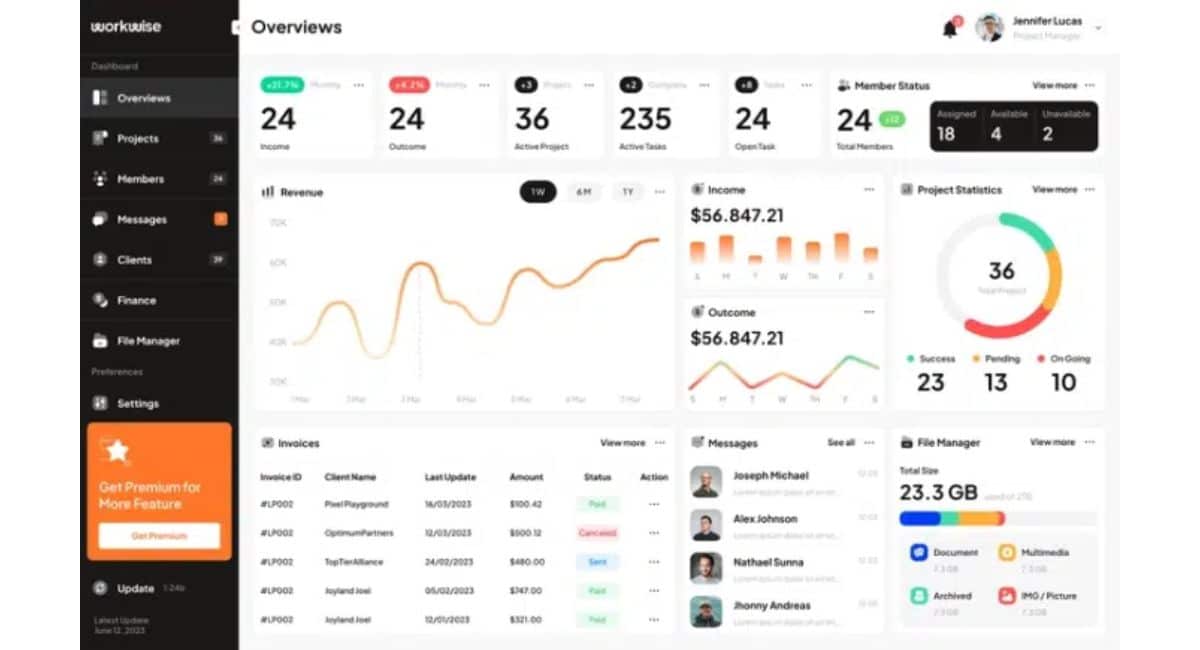
WorkWise is an ERP software in Indonesia that supports the productivity of manufacturing companies by enabling them to run daily operations and production more effectively and efficiently.
This ERP software also supports various types of manufacturing such as make-to-order (MTO), engineer-to-order (ETO), configure-to-order (CTO), and mixed-mode, which helps companies make better decisions.
| Pros | Cons |
|
|
13. Workday
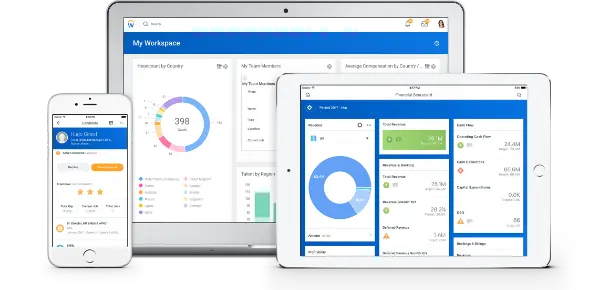
Workday is an example of ERP software, as well as a cloud-based ERP solution designed to help medium and large companies manage assets, resource planning, financing, and human resource management.
In general, Workday’s ERP application provides an integrated solution for various business needs and helps companies manage operations effectively and efficiently.
| Pros | Cons |
|
|
14. Deskera
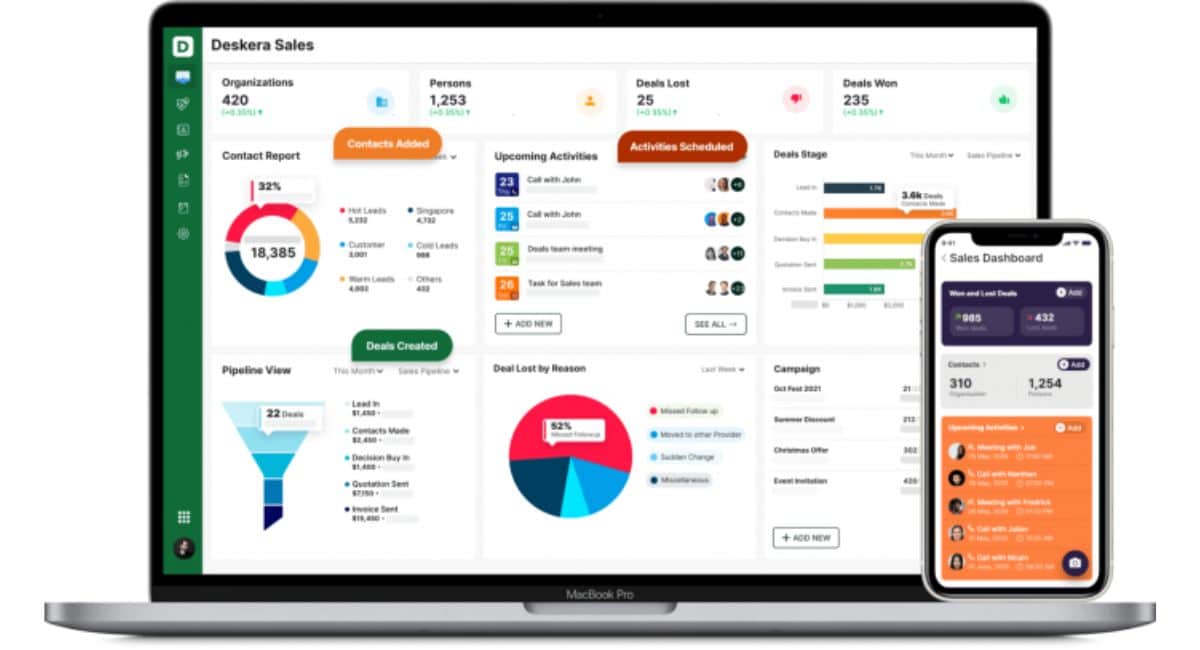
Deskera ERP is one of the best ERP software examples in Indonesia that helps companies manage all aspects of their business in one integrated platform.
This top ERP software in Indonesia offers common features such as finance and accounting management, asset management, project management, inventory management, and human resource management.
| Pros | Cons |
|
|
15. Brightpearl
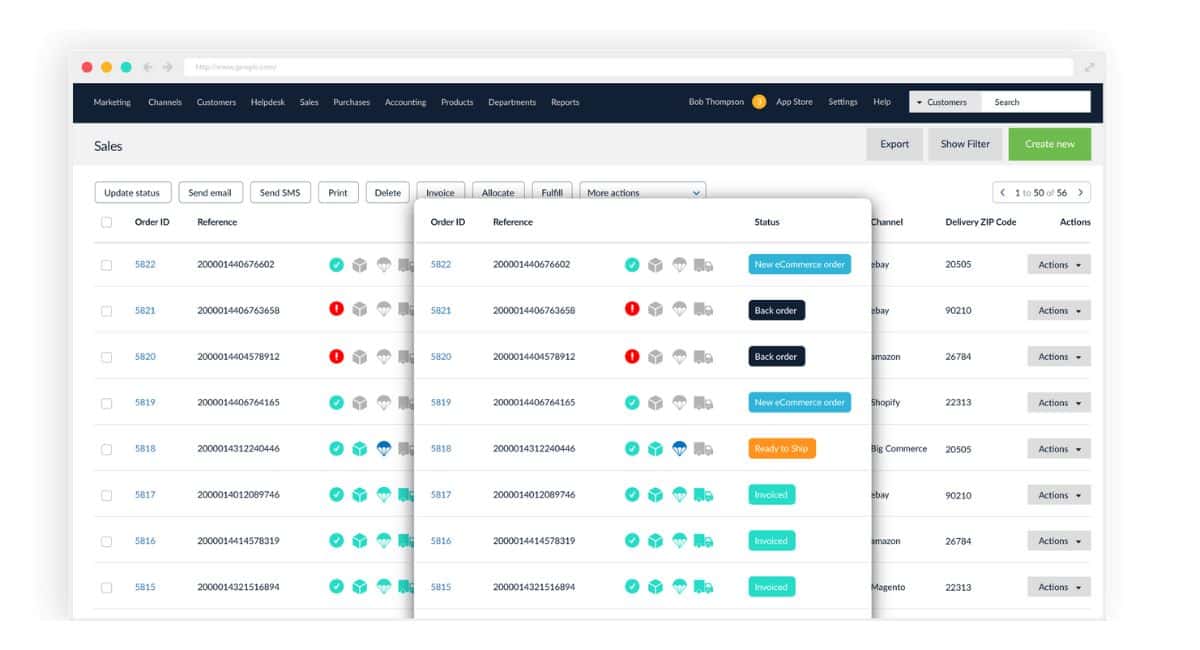
Brightpearl is an example of the best cloud-based ERP software in Indonesia. It supports operations for businesses of all sizes.
This system allows omnichannel merchants to manage their business from a single platform and helps align both online and offline sales. It can also integrate with leading e-commerce platforms such as BigCommerce, Magento, Shopify, Amazon, and eBay.
| Pros | Cons |
|
|
16. SystemEver
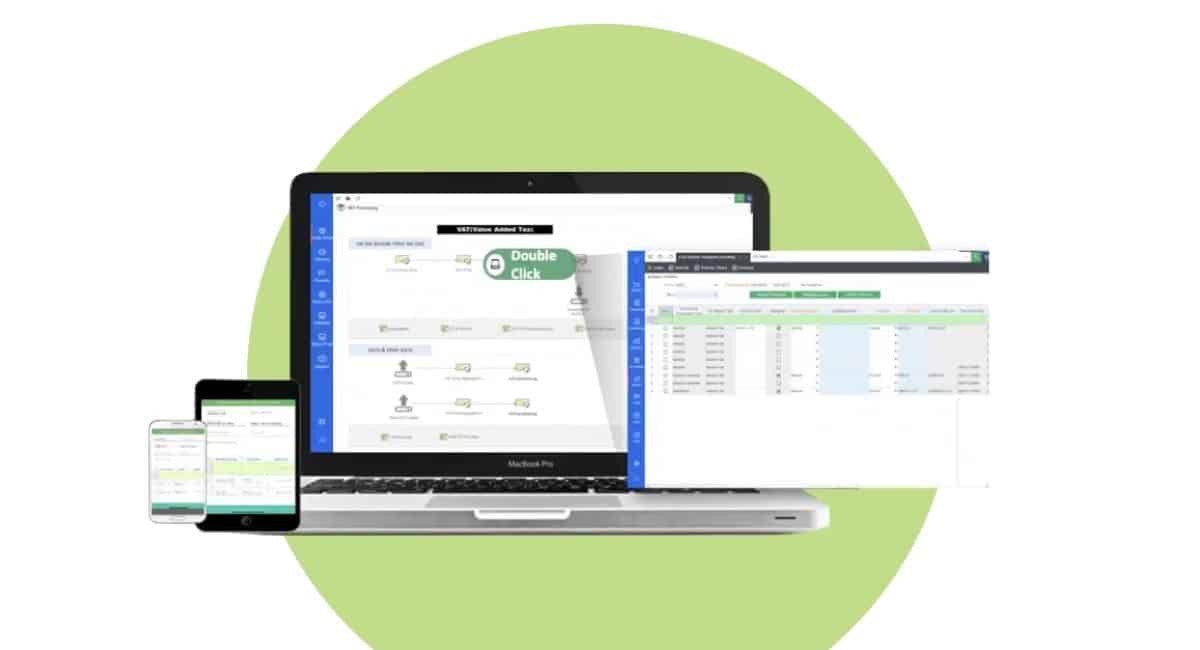
SystemEver provides a comprehensive and efficient ERP software in Indonesia to help companies enhance their productivity and business efficiency.
This ERP software features advanced capabilities such as production, warehouse, purchasing, sales, and financial management.
The software can be accessed through various devices, such as laptops/PCs or smartphones, anytime and anywhere with an internet connection.
| Pros | Cons |
|
|
17. Impact ERP
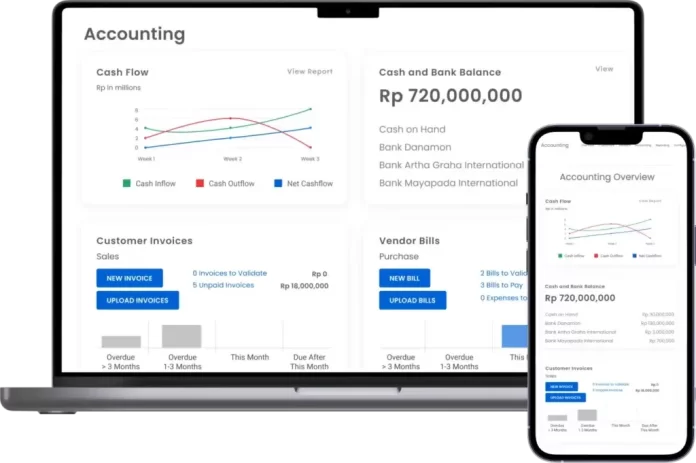
Impact ERP is an ERP solution developed to help manufacturing companies improve operational efficiency.
With Impact ERP business software, users can streamline workflows and boost productivity across various operational areas, minimizing operational barriers.
| Pros | Cons |
|
|
18. SAP Business One
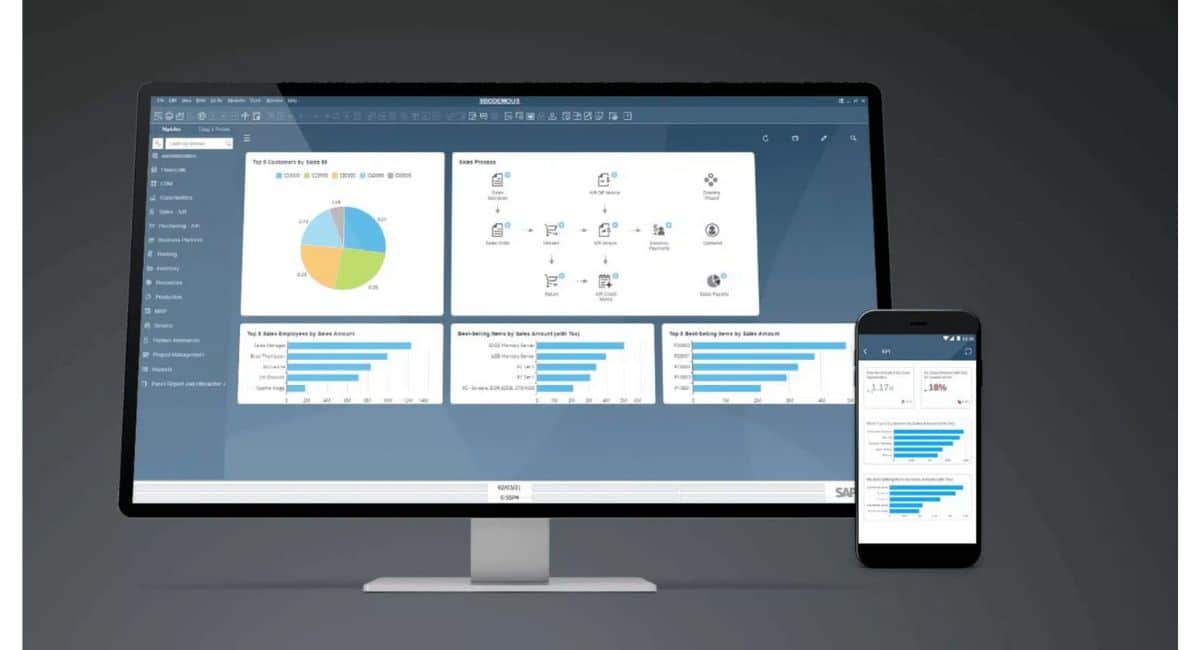
SAP Business One is one of the best ERP software from SAP, specifically designed to meet the needs of businesses. The availability of SAP applications in Indonesia has allowed many startups to grow faster than before with ERP software.
This top ERP company provides a business management system that helps manage finances, marketing, sales, purchasing, inventory, production, shipping, and human resources management.
Interestingly, many people in Indonesia still do not understand the difference between ERP programs and SAP itself.
| Pros | Cons |
|
|
19. ERPNext
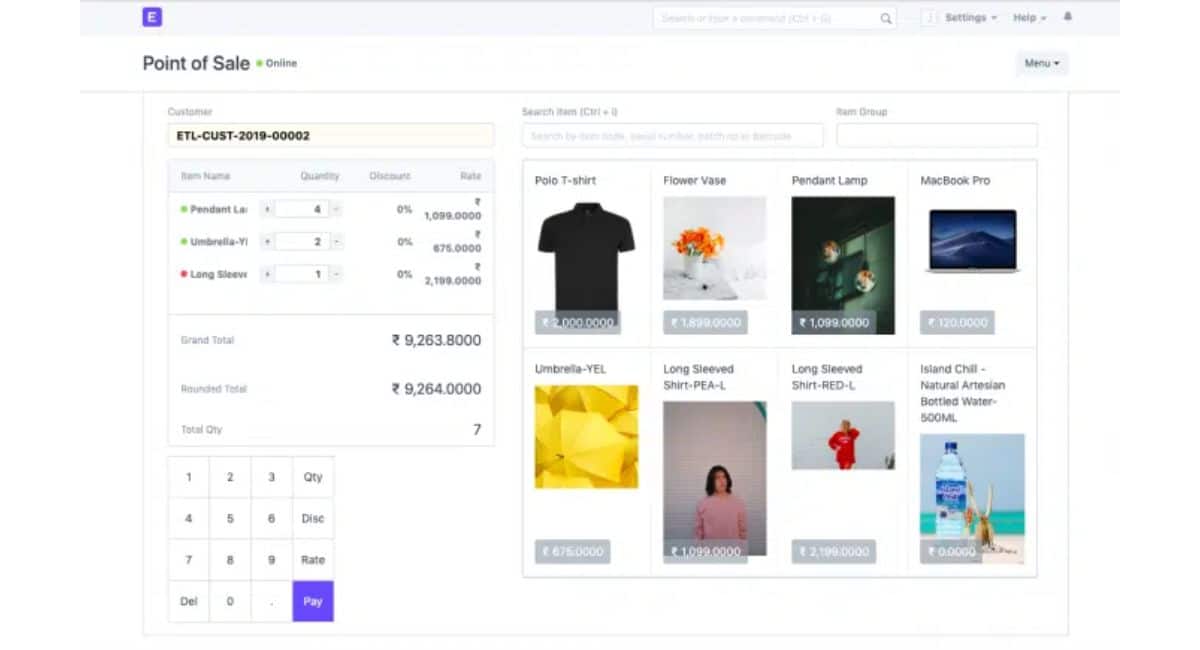
ERPNext is a web-based open-source ERP software from India. Its main modules include accounting, CRM, sales, purchasing, website and e-commerce, manufacturing, warehouse, project management, and inventory.
As one of the open-source ERP applications in Indonesia, ERPNext requires technical knowledge and time for proper implementation. Therefore, assistance from an ERP consultant or specialist may be important to ensure smooth and successful implementation.
| Pros | Cons |
|
|
20. SAP EWM
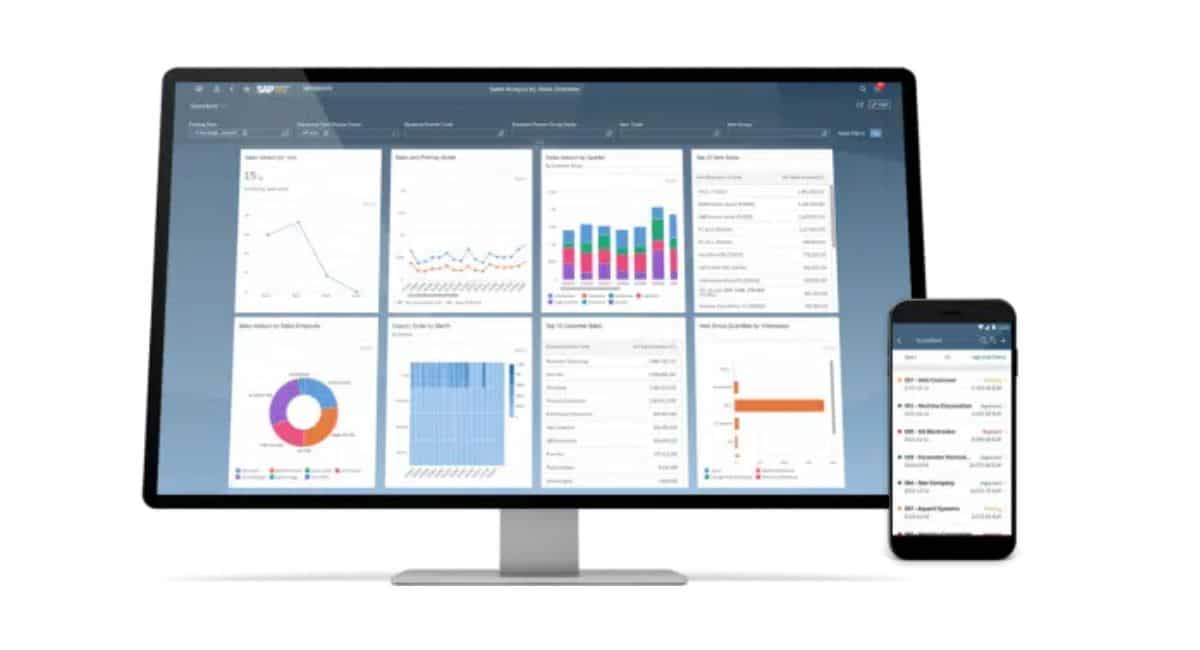
SAP EWM ERP is one of the best ERP software in Indonesia. It features warehouse planning, material management, stock control, order processing, and location tracking.
SAP ERP also integrates with other systems in the SAP SCM suite, such as SAP Material Management (MM) and SAP Production Planning (PP), allowing companies to manage their warehouse business processes holistically.
| Pros | Cons |
|
|
21. Compire
The best ERP software in Indonesia from Compiere offers various management features, such as product management, orders, materials, inventory, finance, and CRM. These features are combined with business views and standard reports that make it easier for users to carry out their tasks.
Compiere, one of the ERP software in Indonesia, has unique features such as cloud hosting, customization according to needs, and support for multi-currency, multi-company, and multi-language.
| Pros | Cons |
|
|
Key Modules of ERP Software
As a complete business solution, ERP includes different modules to aid in managing your company. Here are several essential modules commonly found in ERP software:
- Accounting: ERP software simplifies financial operations by automating accounting, budgeting, invoicing, and financial reporting, ensuring precision and adherence to regulations.
- Customer Relationship Management (CRM): ERP services incorporate CRM features to monitor customer interactions, oversee sales pipelines, and deliver personalized service, fostering customer loyalty and revenue expansion.
- Human Resources: ERP solutions aid in overseeing employee information, payroll, benefits management, recruitment, and performance assessments, improving workforce administration, and boosting employee satisfaction
- Inventory: ERP tools facilitate inventory management tasks such as tracking, stock control, and material planning and procurement.
- Procurement: ERP software streamline procurement processes, ensuring efficiency from purchase requests to invoice processing and payment.
- Manufacturing: ERP platforms optimize manufacturing operations, encompassing production planning, scheduling, quality control, and maintenance, thereby improving productivity and reducing time-to-market.
How Can ERP be Deployed?
ERP deployment integrates an Enterprise Resource Planning (ERP) system into a business to enhance efficiency, streamline operations, and unify various functions within a single platform.
Here are the main types of ERP deployment, each offering different advantages based on business requirements and operational goals.
- On-Premise ERP: This deployment involves installing ERP software on the company’s local servers and infrastructure. It offers greater control, security, and customization but requires higher upfront costs and ongoing maintenance.
- Cloud-Based ERP: Hosted on external servers and accessed via the internet, cloud ERP provides flexibility, scalability, and lower initial costs. It is ideal for businesses looking for a cost-effective, remote-accessible solution with automatic updates.
- Hybrid ERP: This model combines both on-premise and cloud ERP functionalities. It allows businesses to maintain critical data on local servers while utilizing cloud services for added flexibility and remote access.
Understanding the Cost of ERP Software in Malaysia
Investing in ERP software can significantly improve business efficiency, but understanding the costs involved is crucial for making informed decisions. From licensing fees to ongoing support, several factors can influence the total cost of ERP implementation.
Key Factors Affecting ERP Costs in Malaysia
- Software Licensing: Costs vary depending on whether businesses choose cloud-based or on-premise solutions and the number of users.
- Customization and Integration: Tailoring the ERP to fit specific business needs and integrating it with existing systems can add to the overall cost.
- Hardware and Infrastructure: On-premise solutions require investments in servers and IT infrastructure, while cloud-based ERP minimizes these costs.
- Training and Support: Staff training and ongoing support are crucial for effective ERP use, contributing to the total cost.
To manage these costs effectively, businesses can adopt strategic approaches to minimize unnecessary expenses while still gaining the full benefits of ERP solutions.
How to Reduce ERP Costs
- Prioritize Essential Features: Focus on the modules that meet your business’s immediate needs, avoiding unnecessary add-ons.
- Opt for Cloud-Based Solutions: Cloud deployment reduces infrastructure expenses and offers more flexibility.
- Select Scalable Systems: Choose ERP systems that can grow with your business to prevent future reimplementation costs.
- Invest in Early Staff Training: Proper training from the start can reduce long-term support costs and improve system adoption.
How to Choose the Right ERP for Your Business?

Choosing the appropriate ERP software in Malaysia requires careful examination of several important factors. Thus, it’s crucial to thoroughly research these factors below before selecting the right ERP software for your needs.
1. Assess the specific needs of your business
First and foremost, evaluating your business’s particular needs and demands is crucial. This involves considering your company’s size, the sector you are involved in, and the intricacy of your operations.
Grasping these aspects will assist you in streamlining your choices and selecting an ERP solution that suits your business requirements.
2. Consider the scalability of the ERP
As your business expands and changes, your ERP software should grow alongside and adjust to new needs. Seek a solution with modular features for easy addition or removal.
Also, confirm seamless integration with current software and third-party apps to facilitate smooth data flow and communication.
3. Assess the customer support team
When selecting ERP software in Malaysia, it’s crucial to assess the support and training provided by the vendor. Implementing ERP can be intricate. Hence, opt for a vendor offering thorough training and continuous assistance.
Also, the reputation and performance history of the ERP vendor should be evaluated. Choose one with a strong track record and presence in Malaysia to ensure adequate support and expertise for your success.
Conclusion
Choosing an ERP software from a list of top ERP system in Malaysia can be overwhelming due to the array of options available. Each vendor has strengths and weaknesses, so careful consideration is essential.
For business owners seeking an ERP solution, HashMicro is the ideal choice. Our ERP program offers a comprehensive module package for various industries at an affordable price. Our solution seamlessly integrates with third-party apps, simplifying data transfer from other systems.
To learn more about how HashMicro’s ERP solution can benefit your business, schedule a free demo today. For consultation on selecting the right ERP software in Malaysia to enhance your business’s effectiveness and efficiency, please contact our Business Development and IT expert team by clicking here.

FAQ about ERP Software Malaysia
-
What is an ERP System?
An ERP system, or Enterprise Resource Planning software, is a tool that integrates various business functions such as finance, inventory, HR, and sales into a single platform. It helps organizations streamline operations, automate workflows, and provide real-time data for better decision-making.
-
What are the benefits of using an ERP system?
ERP systems offer several benefits, including improved efficiency, better collaboration between departments, reduced errors through automation, and enhanced data accuracy. These systems also provide actionable insights through real-time analytics, helping businesses make smarter decisions.
-
What is the best ERP system in Malaysia?
The best ERP system in Malaysia depends on your business needs, but HashMicro ERP stands out for its tailored modules and scalability. Other popular options include SAP Business One, Oracle NetSuite, and Microsoft Dynamics 365. HashMicro’s localized features make it particularly well-suited for Malaysian businesses.
-
How do I choose the right ERP system for my business?
To select the right ERP system, evaluate your company’s size, budget, industry requirements, and specific needs, such as inventory management or accounting. Consider the system’s scalability and ease of use and whether it offers integration with existing software.
-
Can I customize my ERP system?
Yes, most ERP systems allow customization to meet specific business requirements. This may include modifying workflows, adding unique modules, or integrating with third-party applications. Keep in mind that customization might require additional costs and technical expertise.
-
How long does it take to implement an ERP system?
The implementation timeline varies depending on your business size, your processes’ complexity, and the customization level required. On average, ERP implementation can take anywhere from a few months to over a year, with smaller businesses often experiencing shorter timelines.
-
What kind of support is available after implementation?
Most ERP vendors offer ongoing support, including software updates, technical assistance, and training. It’s important to ensure your vendor provides accessible and reliable post-implementation support to address any issues and help your team maximize the system’s potential.






